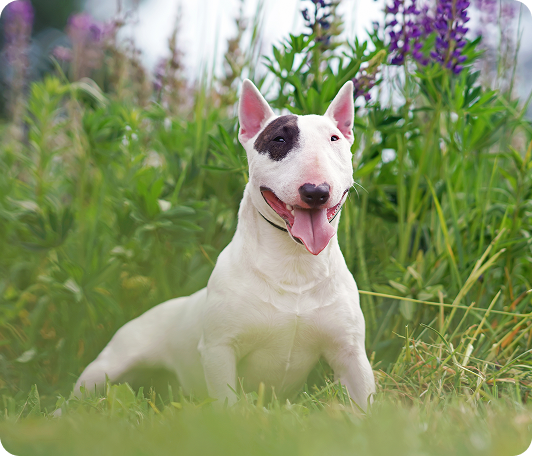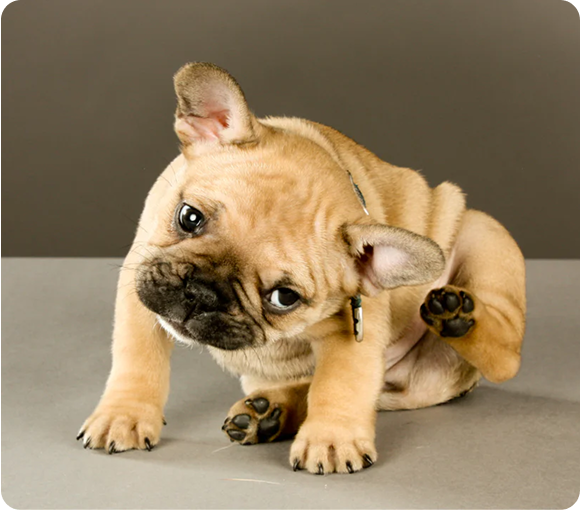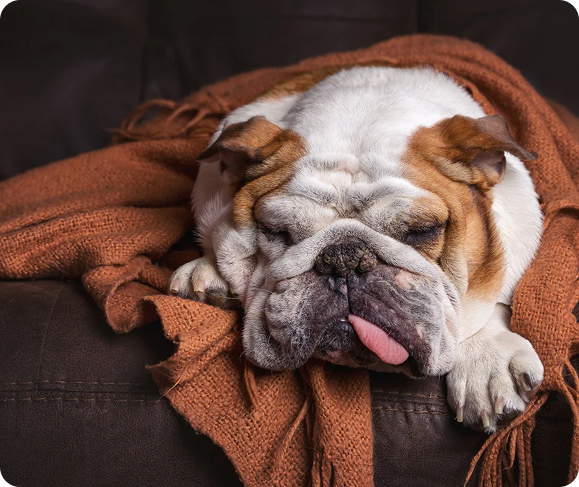
If your bulldog has itchy ears, bum, paws, or face, it may be experiencing allergies, infections, or skin conditions. It's important to consult a veterinarian to determine the underlying cause and receive appropriate treatment to relieve discomfort.
The itch is ever-present, a constant tormentor, the result of hypersensitive skin reacting to allergens in the environment. Dust, pollen, mold spores - all conspiring to inflame and irritate, transforming the bulldog's life into an itchy, scratchy nightmare, with no relief.
Allergies in canines are the defensive mechanism of the immune system which employs specialized immune cells in the dog’s body to defend it against a protein that it sees as an invader.
The specialized immune cells that the body uses to protect itself from invaders are known as mast cells, and when the immune system is stimulated by specific allergens, the mast cells release histamine into animal’s system.
Histamine has an inflammatory effect on the tissues it comes into contact with, which is the cause of the itchy and inflamed skin conditions characteristic of most allergic reactions in canines.
Environmental atopic itch" in bulldogs refers to a condition where a bulldog experiences excessive itching due to allergies triggered by environmental allergens like pollen, dust mites, mold, or dander, which is a genetic predisposition causing their immune system to overreact to these substances, leading to skin inflammation and irritation; this is commonly called canine atopic dermatitis and often requires lifelong management with treatments like allergy testing, immunotherapy, and medicated baths to alleviate symptoms. There are outdoor as well as indoor allergens most affected by contact with skin (vs. inhalation).
Excessive scratching, licking, chewing of paws, redness on the skin, hair loss, skin thickening, especially on the face, paws, and groin area.


Allergies are a common health concern in bulldogs, as they are in many other breeds. Allergies can cause skin irritation, itching, and hair loss, and can be triggered by a variety of factors including food, flea bites, and environmental allergens such as pollen or dust mites. These allergy dragons can wreck havoc on your dogs well-being.
Treatment for allergies in bulldogs typically involves identifying and avoiding the allergen, as well as using anti-inflammatory medications, shampoos, and other products to manage the symptoms. In severe cases, your veterinarian may recommend a special diet or other treatments to help manage your dog’s allergies. Home remedies may help relieve symptoms
Minimizing exposure to identified allergens through environmental controls like air purifiers, regular cleaning, and vacuuming. Their noses are close to the floor, they inhale allergen producers.
Environmental allergies could be just about anything in the dog’s environment. The allergic reaction happens when the dog’s antibodies react to any given allergen, resulting in the dog producing an excessive amount of histamine. This causes an allergic reaction. In our case we believe the culprit with one of our Frenchies is cat hair, a quick swifter of the floor daily seems to be helping. As well as a wet mop, without any harsh chemicals, a bit of natural cleaning solution is added. Sweeping only makes these allergen's fly, if sweeping is your thing, try switching to a broom that's designed for animal hair. Read some of our home remedies to help elevate symptoms
It's also a good idea to wipe off your dogs feet, once they have been outside, as grass can also be a allergen. Keep something like baby wipes in your vehicle for trips to the park.


Medicated baths: Using special shampoos designed to soothe irritated skin and remove allergens. As no one explained to you how important, annoying and difficult baths were. So you and your dog suffered through a few of them. And you saw no benefits and quit doing baths. When your dog started scratching all night again, or smelling bad, you booked a vet visit and felt like the visit was all the same stuff all over again. Most often dog allergies start with you, their living environment, food, treats and a host of other offenders.
As a pet parent, it’s important to be aware of the signs of allergies in your bulldog and to have a veterinarian evaluate them if allergies are suspected. With proper management, many dogs with allergies can lead a comfortable and healthy life. However, some dogs may require ongoing care and treatment to manage their symptoms. Bulldogs are prone to various allergies due to their sensitive skin and respiratory systems. Common allergens include pollen, dust mites, mold, certain foods, and flea saliva. Symptoms may manifest as itching, redness, ear infections, or gastrointestinal issues.


Regular grooming and maintaining a clean environment can also help manage allergies. A quick daily brushing goes a long way. Wiping their feet along with the face especially in the spring when pollen is at it's highest. Regular bathing with hypoallergenic shampoos can remove allergens from the coat, while maintaining a clean environment by vacuuming frequently and using air purifiers can reduce exposure to dust, pollen, and other irritants.
Do you have dragon allergies hiding in your laundry detergent? Try switching to sensitive skin detergent and add extra rinse to the washing cycle, regular washing will also reduce allergy producing dragons like dust and dander.
Identifying the specific allergens causing a dog's allergies is crucial for effective management and treatment. Identifying specific allergens is essential in managing a dog's allergies, as it enables tailored treatment plans, including avoidance strategies and targeted medications. Here are some common allergies that your dog may be suffering from. Spring is usually the highest allergy time for most dogs.
To maintain a clean environment for your dog and minimize allergens, regularly bathe and groom your pet to reduce dander and dirt, vacuum frequently with a HEPA filter, and use air purifiers to capture airborne allergens. Additionally, establish a designated pet area and wash your dog's bedding regularly, while ensuring that any surfaces are wiped down with pet-safe cleaning products. Maintaining a consistent cleaning routine will help create a healthier home for both you and your furry friend.